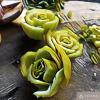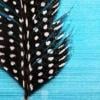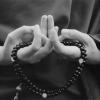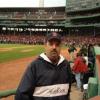Search the Community
Showing results for 'alcohol'.
Found 17,501 results
-
I view this a bit more philosophically. I had the lapband so that I could get healthy, first, and lose weight, second. Both important. What I'm not willing to do is to let my band become a prison in the sense that it rigidly prevents me from indulging in what makes life a joy to live. I believe in "everything in moderation". Today, I follow a healthy diet, I go to the gym 4 times per week, and I greatly restrict the amount of alcohol I take in (carbonated or otherwise). That said, if I want a beer or 2 at a ball game, or a bite of dessert from time to time, I go for it. As long as it is the exception, and not the rule. I have always been known in my circle of friends as the guy who appreciates good beers. I like being that person, and I like the flavor of a well crafted beer. I'm not willing to let the band change that. For those people who think this will doom me to failure, I can only say that I am pleased with my current weight loss results. My health has never been better (sugar and blood pressure). All this, and I have managed to keep a small amount of beer in my diet. BTW, I asked my WLS doctor about the carbonation and his opinion was that carbonation would not stretch the stoma. He pointed to a lot of other foods that cause a lot of gas as a by-product that we are still allowed and encouraged to eat.
-


My hell week starts tomorrow (April 26th)
Arabesque replied to SleeveToBypass2023's topic in General Weight Loss Surgery Discussions
Yeah, the withdrawals can be hard. Takeaway the caffeine, the sugar, etc. & you get headaches, feel weak & sometimes tremors. Similar to withdrawal from alcohol or drugs. You’ll feel generally crappy for a few days then it improves. It can be surprising to realise how much you & your body relied on these stimulants & then in time realise how much you didn’t really need them. -


October Surgery
perspectiveiseverything replied to AmberSarbree87's topic in Gastric Sleeve Surgery Forums
Not sure of the date yet, but it'll be sometime in October. For now I'm working on eating well (high Protein and veggies/low carbs) and moving my body more. Also cutting down on caffeine little by little (I'm down to one cup of half caff for now) and cutting back on alcohol (down to once a week or so - I wasn't a heavy drinker before but I usually like a glass of wine with dinner). Here we go! Sent from my iPhone using the BariatricPal App -


How many calories do you eat in a day?
FluffyChix replied to elliekay's topic in General Weight Loss Surgery Discussions
@elliekay I also think the question has to be asked about the quality of your 1100-1200 calories. What did it consist of? Was there alcohol involved? I generally think that you're traveling so you may have fluid retention in your limbs. You may also be full of poop! But...if it were me, and it has been this past year...I would go back to your 600-900 cals until your weight comes back down. Then start slowly and emphasis on SLOWLY raise your cals with lean proteins, healthy fats (avocado, butter -- yes, butter, etc), and low glycemic veggies and a tiny bit of fruit. I raised cals at first 50 cals per week, then later 100cals/1-2 weeks, then lastly 200 cals/2weeks. I went from eating liquid diet at 300-400 cals/day to eating at 1500 cals that way. The weight loss did level off and I'm basically in maintenance at 1500 cals which is where the surgeon wants me right now. If I had done it quickly though, I would have gained badly. Also, just 1 drink of alcohol makes me instantly put on 2lbs overnight. So it's just not worth it... Hope you get it figured out!! -
Expecting a surgery date in October. So far, I'm cutting down on diet soda and alcohol, and drinking less with meals. For me, emotional eating is an issue, so I'm working on that. Trying to recognize the head hunger, and find other ways to satisfy my needs. I'm also getting exercise back into my life, mostly walking and dance videos. 10-15 minutes at a crack so far. Things are starting to get real...
-
I'm scheduled for 10/12. I'm working on losing some weight between now and the end of September when I'll start the two week pre-op diet. I need to work on cutting out sodas and not drinking while eating. Not to mention trying out Protein shakes to see which ones I will like. I don't think I'm the pre-mixed shake type, but it might just have to do. Oh and I also need to start moving more.....I guess the only thing I've accomplished in the 4 days since I started working on eating less is not drinking alcohol. I guess that's something!! I'm a huge procrastinator, so I know I have to be better at this....
-
The areas away from the steristrips I removed with rubbing alcohol. The rest just faded with time and it has been a week since my procedure.
-
I went out to a H.S. reunion on Saturday night, and I had 2 glasses of wine, and sipped on a shot of Jagermeister. At the time, I seemed to stomach the alcohol just fine, and I made sure to have a few sips of Water before bed to wash everything down. I got up on Sunday, and drank some water. But we were going out to eat with some friends, and didn't get to eat until like 1pm. We ate at a hibachi, and I had a couple of pieces of sushi, plus a little bit off my husband's hibachi meal. It should definitely have been enough food to fill me up, but my stomach still felt funny, and my brain interpreted the sensation as hunger. Knowing that I had eaten enough, I didn't allow myself to eat again until around 6:30 pm. So basically I suffered all day with a feeling like hunger, and didn't do anything about it except drink water. Then, at 6:30, I ate dinner, leftovers from my husband's hibachi meal. I ate what I felt should be enough, and then stopped. I was STILL feeling hungry. I waited half an hour, and then ate some low fat ice cream. FINALLY, the feeling of hunger went away. So, my theory is that I had acid stomach and my brain was just reading the signals all wrong, that's why the milk-based ice cream helped. Does this sound like a feasible theory? I'm also concerned, because I feel hungry again all day today. I had my usual Breakfast Protein mix, and then I ate a half of a Panera bagel that someone evilly brought to work... then another half a couple of hours later. Too much food, I know! Am I just worrying too much? Could I have messed up my band that easily?
-
Bubbles are our friend. Had me a nice glass at my daughter's wedding two weekends ago. It was mighty nice. Oh and at her bridal shower about a month before the wedding had me a nice glass of wine and a nice glass of Jamaican Rum Cream on ice. Can we say sloshed? And the games we played at this shower. Let's just say the cake was anatomically correct. And I have pictures to prove it. LOL!!!! Putting a rubber on a cucumber while blind folded and being timed was something to see just let me tell you. I broke my rubber but not after letting one fly off the end first. LOLOLOL!!! GOod time was had by all and the alcohol helped ALOT. And don't get me started on the Bachelorette Party now. WHOO HOO!! Gracie the room is spinning and I want to get off.
-


Oprah Today: Weight Loss and Obsessions
skyeblu79 replied to skyeblu79's topic in LAP-BAND Surgery Forums
Would I have tuned in if the show were about people w/healthy habits no? Addictions, yes. A healthy habit and addiction are too different things. My going on the internet is a healthy habit. I don't wake up thinking I have to jump on the internet or forget to feed my kid b/c I have to jump on the internet. People that have addictions have serious problems and need help. You can be an alcoholic or enjoy wine tasting. Aren't these too completely different things? Who would have tuned into the show if people turned from food to knitting? No one would care, that's good.. -


Oprah Today: Weight Loss and Obsessions
KariK replied to skyeblu79's topic in LAP-BAND Surgery Forums
Yeah I think some ppl just have addictive personalities. My cousin always has something she's addicted to, and takes the the EXTREME. For the last few years its been running, and she runs multiple hundred mile marathons. Previously it was Mary Kay, previous to that it was religion, previous to that it was alcohol, previous to that it was ...etc. Her knees are totally falling apart at this point but she keeps running, and her heart is having a hard time keeping up becasue the human body is not meant to run THAT much. My aunt is scared she will have a heart attack, her other daughter hopes one of her sister's knees will just totally blow out so that she can't run anymore. But then my aunt says she's scared what will her next addiction be?? I don't think im really a food addict. I don't have an addictive personality. Hmm maybe baby clothes though, I love buying clothes for my baby! Gymboree, Gap, Old Navy, Children's Place, lol you name it im there! HA. -


what is the real reason I became obese?
NancyInOkc replied to leeann71's topic in General Weight Loss Surgery Discussions
I had only recently had this topic come to mind. I know that so many times "addicts" have a turning event, something that changed their thinking. I always assumed it was when I quit playing sports and kept eating like an athlete. I only recently realized that I didn't start gaining at that point, but several years later when I got married....to an alcoholic for 15 years. Without realizing it, I began using food to hide my emotions, to Celebrate joys and events, to console me when I was sad or hurt, and pretty much to answer any problem I had. Diets won't work unless the lifestyle changes. Even though 15+ years has passed, I still have the habits that this dysfunctional marriage ingrained in me. I am now in a very supportive, positive relationship, and know that I can be happy and healthy going forward. May 5th, 2014... 10 days and counting! -
I have ordered 3 sodas since being banded and with all 3 orders I have drank a total of about a 1/2 cup.I am a karaoke junkie and don't drink alcohol so if I go to a karaoke bar that does not have iced tea or lemonade I order a diet coke but usually just sip at it.I don't drink it otherwise but like I said in my previous post I try to keep drink sugar free drink packets.
-
Jachut, you are so right. Looking for a hard stop with PBing isn't a healthy way to permanent weight loss. I tried it for a short while and I felt sick all the time. I am now trying to rely on myself. It isn't easy. It's like the alcoholics say...One Day At A Time.
-


Never hit goal weight now I’m at pre weight
BariMama replied to danybx's topic in Gastric Sleeve Surgery Forums
I’m right there with you. I’m also trying to get my eating back under control. I’m a single mom and have to work 60+ hours a week to make ends meet and also try to find time to spend with my daughter. Stress is why my eating fell off. It’s so hard to control. I’m trying my hardest to get back on track. Life just hits you hard sometimes and it sucks, but you can do it. I’m the same way with alcohol also, it’s a stress reliever. I think for a little bit I started giving up on myself. I was trying to keep everything and everybody else together I couldn’t keep myself together too. -
This is absolutely true!!! I am an addictions counselor and I see addiction transfer all the time! Usually from drugs to alcohol or drugs and alcohol to food. Oprah also did a show on this for people who had WLS and then became alcoholics. Be very aware!!!
-
Suann, thank you for the post. I am an alcoholic too and have battled my demons for about 5 years. I am sober now, thank God. My brother is still out and drinking. He goes sober for like a month then goes back out. Hopefully he will give his ego to God and seek help. He doesn't believe in AA, says all they do is talk about drinking. I go to AA at least 1-2 times a day and it has really helped me. My life is in God's hands and one day I hope my brother finds the same. Thanks again and I am sorry for the loss of your sister.
-


2 Weeks Post Lap Band Surgery And A Margarita???
icequeen813 replied to Kellysue's topic in LAP-BAND Surgery Forums
Why would you sabotage your weight loss this early? Did your MD, provide you with a diet to follow the first 6 weeks post-op? There are empty calories in alcohol, personally I rather eat,than waste calories on wine or cocktails.I would wait until you have completely healed. By the way,once you have been banded, alcohol affects you quicker,according to other posters. -


Just Curious about cc you were at for green zone.
TheProfessor replied to tootyoyo's topic in LAP-BAND Surgery Forums
You bet! We are in this together! Woo woo! Tonight when I have my alcohol-free glass of Water after dinner (ye GODS) I will toast you! -


Just Curious about cc you were at for green zone.
Hope41 replied to tootyoyo's topic in LAP-BAND Surgery Forums
If I could avoid my cocktails I would start losing weight again, my meals do last me 3-4 hours but they are still a good size meals smaller than regular but definitely not as small as they should be. Alcohol is my weakness as after a long day at work I do enjoy my drink How do we not drink alcohol? -
My dr never mentioned no coffee or alcohol.... i can live with out the alcohol... but COFFEE... The world couldn't handle me off of coffee.....
-


Orthostatic Hypotension
RickM replied to mousecat88's topic in General Weight Loss Surgery Discussions
The orthostatic hypotension is not unusual with rapid weight loss, and is one of several ramifications of your body still trying to function at your old weight when there is substantially less of you at hand - we often feel cold for the same reason, that the body is still trying to cool what is no longer there. These things do improve over time, though it may be a year or two. In the meantime, as the docs and others suggest, more salt, lots of fluids (non-alcoholic), and also exercise is also a common prescription to "keep things pumping" On the exercise front - this should improve things, but let your trainer know that you have this problem so they can watch for it. Also, another side effect of the rapid loss is that your heartrate will likely be lower, at rest and in activity, so if the trainer is pushing to achieve some specific heartrate to indicate some level of exertion, (often it is 80+% of a theoretical maximum rate) their measurement scale may be skewed and they may push you harder than they should. When I was 2-3 months out, I noticed that exercise (brisk walking short of a jog) that used to get my heart into that 80% zone (140-150 for me at the time) would barely get me over 100; even today, years later, my resting pulse is low, often 50 or below, and doctors/nurses unfamiliar with me will question it (yes, it's normal) though my BP is normal to a touch high. So, the exercise should be OK, but let them know and don't let them push you too hard - your cardiac system may have excess capacity, but you may be evertaxed elsewhere. Your ketone levels have little to do with whether or not you are losing weight. They are in indication that you are burning fat. but that can be ingested fat as well as stored fat. If you want to burn your stored fat, you need a good caloric deficit, and it matters little what style of diet is used to accomplish that - low fat, low carb, keto, paleo, Atkins, whole 30 or whatever it may be. I used a relatively high carbohydrate diet (by Atkins/keto standards - 100ish g/day) and lost quite rapidly - because of the fairly high caloric deficit; ketones were there in the blood tests because I was burning my fat stores, but those readings weren't a goal. The high fat/low carb type diets a la keto and paleo are popular these days, but the high calorie levels that often accompany them can sometimes make weightloss difficult. Clinically, high fat/low carbohydrate diets are often prescribed to avoid or minimize weight loss after a non-WLS gastrectomy, so if you are trying to use such a diet for weight loss, you have to keep a close eye on calorie levels. Being four months out, you should still be fairly restricted in you eating volume so that you should still be losing at a reasonable pace, but if you are ingesting too many calories by "eating around" your wLS - drinking calories or very high calorie foods - then you can see low or no loss at this point. -
Well, you asked the golden question. The answer depends on who you ask. Many people count a carb as a carb. Some don't count the fiber because it's insoluble and passes right through you. Others don't count fiber or sugar alcohols. The last one is tricky because for some sugar alcohols cause a sugar spike like sugar and for others there is no spike - meaning no trigger for wanting more carbs. Personally, I delete the fiber and sugar alcohols. I did just have a stall, but since I have been doing this all along, I really don't think that caused the stall. Like everything else, I believe you just have to experiment and find what works for you.
-
I was also getting horrible gas that started in the afternoon - it was my Protein bar in the morning. I guess that I am sensitive to sugar alcohol because once I switch to a brand without the sugar alcohol the gas went away. I think your 50 lb loss is awsome and you should be proud of yourself!! We may be a little slower but in the end we are a little firmer. Good luck,
-
so you haven't had any problems that i hear on the site about never eating bread again etc....is there anything you find your stomach can not take? I've noticed I'm becoming scared that this might actually work! Which creates a whole new set of anxieties but I've been getting worried about people who say they can never drink soda again or alcohol or bread. I thought it just shrunk your stomach so you couldn't eat as much of things















